

Looking to understand how to budget, manage debt, build an emergency fund or plan for college or retirement? Wondering how to better protect yourself, your loved ones or your business from fraud or identity theft? Our Financial Education resources can help!
We all have financial blind spots, and discussing personal finance with other adults can be...uncomfortable. And yet, whether you're moving into a new home, getting into investing, or shopping for health insurance, there is always a part of the process you haven't thought about, or don't know about, which can be frustrating and time-consuming when you need to make an important decision. We are here to help!

Explore the pathways to owning a home and making smart financial decisions

Opening a bank account is your ticket to financial freedom, and it's easier than you might think. Let's dive into the world of banking with American Riviera Bank, where modern solutions meet personalized service.

By properly managing a credit card, you can earn rewards and build your credit score, all while making your regular purchases.

Even if you're financially responsible, life's unpredictable nature can sometimes catch you off guard, at times making it dangerously easy to fall into debt. Discover how to start managing your debt with these tips and tools.

It’s scary to find yourself in a situation where you can’t afford your monthly debt payments. Whether that’s due to a sudden life change, like a job loss or illness, or if you’ve simply found yourself unable to keep up, there are steps you can take.

Refinancing can be beneficial if everything lines up in your favor. What can you get out of it? The list is long and exciting for someone stuck with loan payments that they aren’t happy with.

Using a credit card is easy. But choosing one isn’t always simple.

A practical, workable budget is one of the most crucial tools in your financial wellness arsenal.

With a health savings account (HSA), you can set aside pretax income to pay for current or future health care, including deductibles, copayments, and any qualified medical expenses such as dental bills and prescription drugs. Any withdrawals you make from the HSA to cover these costs are tax free.

Updated April 2025
April is National Financial Literacy Month so we are focusing this month on topics around healthy spending, saving and more. Today's topic? How to teach kids about money.

A renter's insurance policy can help protect your personal property and yourself from liability for accidents that happen in your living space.

You’ve got rights as a renter. Of course, your landlord has rights too.

One of the many mysteries of college, especially freshman year, is what being there is actually going to cost. Sure, you know there’s tuition. But how much will you need to make it through the first semester? The first year?

Debit cards are one of the most common forms of payment. In fact, according to Bankrate, 63% of people between 18 and 29 don’t bother with cash, checks, or a credit card, preferring to use their debit cards.

Most people ask, "How much does college cost?"—that’s the first mistake. It’s not to say this question isn’t answerable, but grouping college into one huge expense can be a little deceiving.

More than half of all college graduates have used student loans to pay tuition and other costs. So if the lingering bill for your education makes you nervous, know that you're not alone in facing student debt and there are options that can make repayment easier.

Borrowing money makes it possible to afford things that you couldn’t otherwise, but make sure you understand what you’re signing up for to avoid falling into overwhelming debt.

Interest plays a role in almost all aspects of personal finance, including savings, investing, credit, and loans.

A credit score is a number that potential lenders will use to determine whether they should lend you money, how much, and at what interest rate.

When looking for a new car, you have three main options: buy used, buy new, or lease. There are pros and cons to each method. Your choice will be based on various financial considerations, driving habits, and personal preference.
Starting young is key to financial wellness and success. We offer programs throughout the year to promote financial literacy in fun, engaging ways.

We bring engaging and relevant financial literacy lessons to classroom on the Central Coast as part of the American Bankers Association's Teach Children to Save program.

The Lights, Camera, Save! video contest is a call for teens to use their imagination to educate themselves and their peers about the value of building sound financial habits before adulthood.
Your privacy and safety are important to us, so we are committed to providing you with the tools and knowledge you need to keep your accounts and personal information secure.
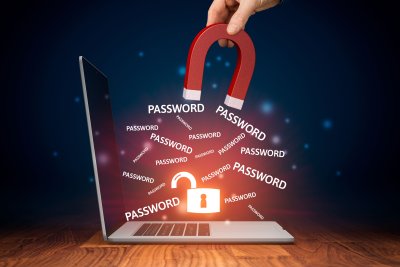
Companies report over 5,000 data breaches a year, exposing sensitive information, including login credentials. Don't be a victim—learn how to protect yourself!

Your best defense against fraud is you, but we offer great tools to help!
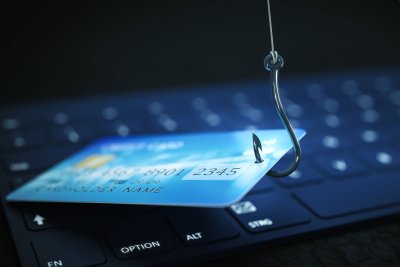
Debit card fraud is on the rise, but there are things you can do to protect your accounts.

Check fraud (forgery, theft, washing and counterfeiting) can be a nightmare to clean up, but a few cautious steps can help protect your checks!
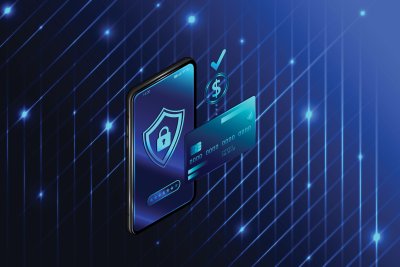
Our devices are an integral part of our day-to-day banking, but they can also be prime targets for fraud. Learn how to protect yourself and your information!

Stay alert to corporate account takeover threats!
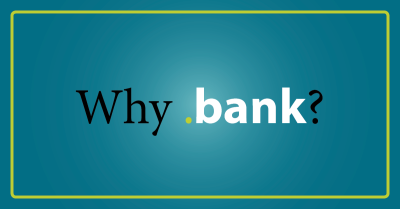
Quick verification that the website or email is authentically from our bank, so you can interact with confidence when you see .BANK at the end of our email address and website URL.
In today's complex economy, fraud and financial crimes can take many forms. The resources below discuss the more common forms of fraud that we see in the banking industry, as well as offer ways to help protect yourself.
The FDIC also has special guides for bank customers:


Elder abuse is an issue that poses a significant and detrimental threat to the well-being of older individuals. It’s a pervasive problem according to the Department of Justice, with at least 10% of adults aged 65 and older experiencing some form of abuse within a given year. Elder abuse entails the deliberate action or neglect by a caregiver or other person in a relationship involving an expectation of trust that results in harm or potential harm to an older adult. It can take various forms, including physical, emotional, sexual, financial, as well as neglect or isolation. Elder financial exploitation in particular is a growing concern, as the FBI’s Internet Crime Complaint Center’s (IC3) recently reported an 84% increase in total losses to seniors between 2021 and 2022.

As we discussed in our last post, elder financial abuse robs older Americans of billions of dollars in money, property and other assets every year. As those safeguarding their customers’ finances, community bankers are key watchdogs for monitoring and preventing this abuse.
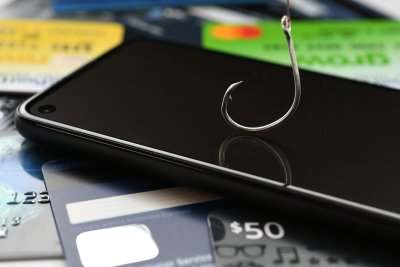
Every day, thousands of people fall victim to fraudulent emails, texts and calls from scammers pretending to be their bank. And in this time of expanded use of online and mobile banking, the problem is only growing worse. In fact, the Federal Trade Commission’s report on fraud estimates that American consumers lost a staggering $8.8 billion to phishing scams and other fraud in 2022—an increase of 44% over 2021.

In the world of financial fraud, a disturbing new trend has emerged, leaving victims both emotionally shattered and financially devastated. “Pig butchering” scams are a variation of classic romance or investment scams and tend to target the older population who have amassed wealth over the years.

Artificial Intelligence has revolutionized various aspects of our lives in the information age, including finance. However, as advancements continue, so do the risks. One emerging and concerning threat is the utilization of artificial intelligence (AI) in financial fraud. Criminals are leveraging AI to execute scams that are increasingly sophisticated and difficult to detect. This article delves into the alarming rise of AI-driven financial fraud, its impact on consumers, and the steps individuals and organizations can take to protect themselves.

Scams and fraudulent activities have become increasingly prevalent in today's digital age. One particularly insidious type of scam is the recovery scam, where fraudsters target individuals who have already fallen victim to a previous scam. These scammers pose as helpful individuals or organizations, offering to assist victims in recovering their lost money or prizes. However, their true intention is to deceive victims into paying upfront fees or providing sensitive personal information, causing further financial harm.

Consumers are increasingly falling victim to sophisticated investment scams, with cryptocurrency at the forefront of these deceptive schemes. Reports from the FBI, Federal Trade Commission (FTC), and California Department of Financial Protection and Innovation underscore the alarming surge in investment scams, prompting more resources and education available to protect consumers. Investment scams include pyramid schemes, securities fraud, or advance scams that charge upfront fees to invest.

Updated July 2025
We are issuing this warning to address the increasing prevalence of scams targeting our clients and to offer guidance and support to those who may have been affected. The FTC received fraud reports from 2.6 million consumers in 2024, nearly the same amount as 2023.
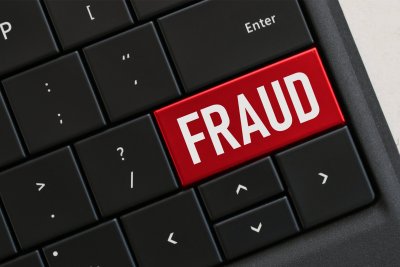
In previous blog posts, we’ve highlighted the dangers of using email to conduct business transactions and provided guidance for verifying payment instructions sent via email using “out-of-band” channels, such as phone numbers or invoices previously on file. The FBI also continues to provide PSAs and announcements on the risk of email compromise, previously reporting that over $26 billion was lost from June 2016 to July 2019 internationally and in the United States.
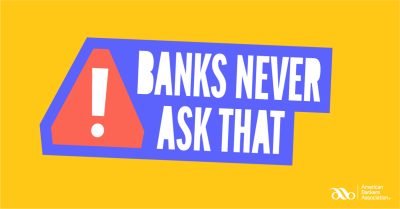
It's National Cybersecurity Awareness Month! At American Riviera Bank, Community Banking means not only providing tailored financial solutions but also ensuring the security of our valued customers. In an era of increasing digital interactions, it's crucial to stay vigilant against fraudulent activities. Let's work together to safeguard your financial well-being.

Phone calls from scammers can be alarming, even frightening. Arm yourself with the tools you need to recognize and stop fraud!

New email scams pop up everyday and fraudsters are getting smarter. Know what to look for to avoid giving out personal information!
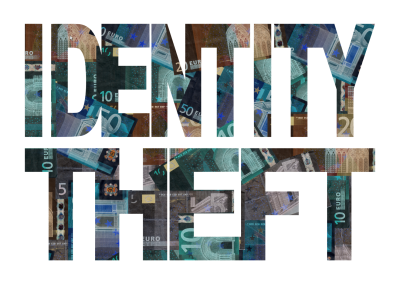
Recovering from Identity Theft can take years and can be expensive. Learn how to avoid it in the first place and what steps to take if the unthinkable happens.

We take the security of your online accounts very seriously and, with online bill pay fraud occurrences on the rise, we want to let you know that we care and we have you covered!

The best way to have a secure online experience is to update your browser. Use the most up-to-date browser to keep your financial information safe.
Every day, thousands of people fall victim to fraudulent emails, texts, and calls from scammers pretending to be their bank. Check out these fun, but informative videos from the American Banker's Association to help with best practices for phishing defense!